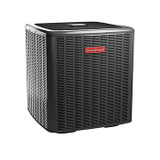HVAC Maintenance Checklist And Tips For Beginners
HVAC Maintenance Checklist And Tips For Beginners
HVAC systems last for longer when both homeowners and specialists have a maintenance schedule and a checklist of items. This helps your system last longer and reduces any excess strain on it. Whether or not you are new to learning about these machines, or are starting as an HVAC contractor, knowing these tips can not only save on energy costs, but improve health in the area.
Regular Maintenance Tips
Generally, you want to schedule regular inspections for your HVAC units and system. Don’t put any maintenance off until your air conditioner or furnace start failing. By then, you may have more expensive repairs on hand.
Remove Debris, Dust And Dirt
Your system must never suffer clogging. Dust and dirt can gather easily, especially if the space is enclosed. This can block airways, and prevent different components in the system from functioning properly. They may also put undue strain on the motor blower, which has to perform more work in the same amount of time.
Have appropriate vacuums and brushes for handling delicate parts such as motor blower fan blades. Vacuums can navigate through these parts and remove dust efficiently, especially when you have large clumps. For outdoor units, check on a monthly basis for grass clippings, dirt, pollen, and twigs. Schedule those around days with landscaping or lawn-mowing, since those can produce ample debris.
Replace Your Air Filters
Related to removing any potential clogging material, you need to create a schedule for the air filters within your heating and cooling systems. The filters are designed to prevent dust and dirt from entering. Even so, eventually the debris acclimates and causes clogging.
Stock up on filters that fit your system, and replace them every 90 days, or three months. Conduct monthly checks, to see if excess dust has caused clogging. A dark filter or one with ample dust may require an early removal, with putting in a new one.
Test Your Carbon Monoxide Battery, Replacing Annually
Your house must never have a high amount of carbon monoxide. The gas is odorless and invisible, but it is deadly and causes suffocation. It usually emerges from combustion, thus potentially from heating systems. Sometimes even small amounts that don’t trigger your detectors can cause symptoms of poisoning, such as nausea and fatigue.
Your carbon detectors can save your life, as well as that of your guests’ lives. Have a plan in place for turning off heating systems in the case that the detectors go off. That requires making sure the batteries are replaced at the same time each year.
Save Money With Tips From Furnace Part Source
Furnace Part Source wants to help homeowners and HVAC specialists prepare for regular maintenance during the year. We are ready to answer all of your questions about how to proactively handle issues in your heat or air conditioning system, and what to do to improve safety.
Reach out to one of our representatives to learn more about the tasks and how an HVAC system works. Furnace Part Source believes in preventative maintenance.
Recent Posts
-
Trane Central Air System Not Cooling
Struggling with a Trane central air system that won’t cool your home? You’re not alone. In this deta …27th Jun 2024 -
Lennox Central Air System Not Cooling
When your Lennox central air system stops cooling, it not only disrupts your comfort but can also si …27th Jun 2024 -
Goodman Central Air System Not Cooling
When your Goodman central air system is not cooling, it can be frustrating and uncomfortable, especi …20th Jun 2024



